Securing your home and ensuring the safety of your loved ones is a top priority for any homeowner or renter. In this article, we’ll dive into the fundamentals of home security, offering valuable insights and practical advice to help you fortify your living space. From choosing the right locks and alarm systems to implementing simple yet effective safety measures, we’ll guide you through the essentials of protecting your home.
Whether you’re a seasoned homeowner looking to bolster your security or a new resident eager to create a safe haven, join us on this informative journey to learn the basics of home security and gain peace of mind in your own abode.
The Basics of Home Security
Why It’s Important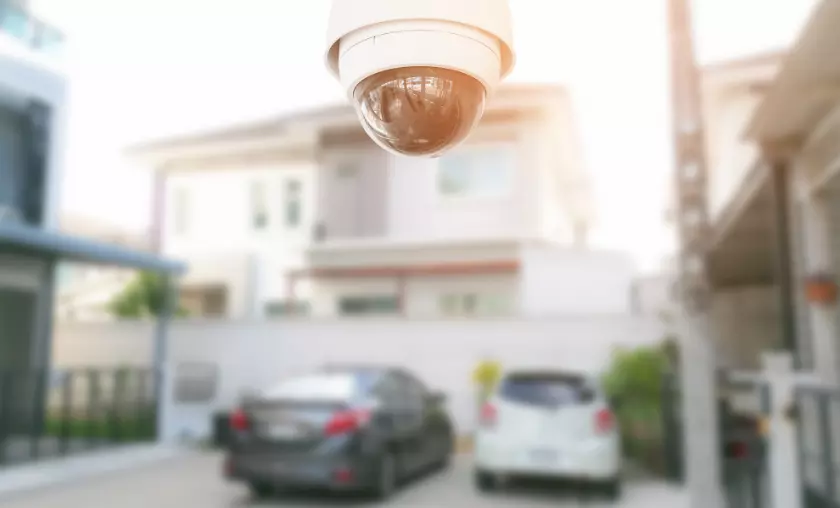
Safeguarding your home and loved ones is paramount for ensuring a secure and comfortable living environment. Your home is not just a physical structure; it’s a sanctuary where you create memories and share moments with your family. By taking steps to protect your home, such as installing security systems, reinforcing doors and windows, and practicing safety protocols, you provide a sense of safety and peace of mind to your loved ones.
It’s a way to show your care and commitment to their well-being, fostering trust and harmony within your family. In an increasingly uncertain world, safeguarding your home extends to protecting your loved ones from potential threats and dangers. From burglaries to natural disasters, preparedness can make all the difference in ensuring the safety of your family members.
By having emergency plans in place, access to essential supplies, and knowledge about potential risks, you empower your loved ones to respond effectively to challenging situations.
Risk Assessment
Identifying Vulnerabilities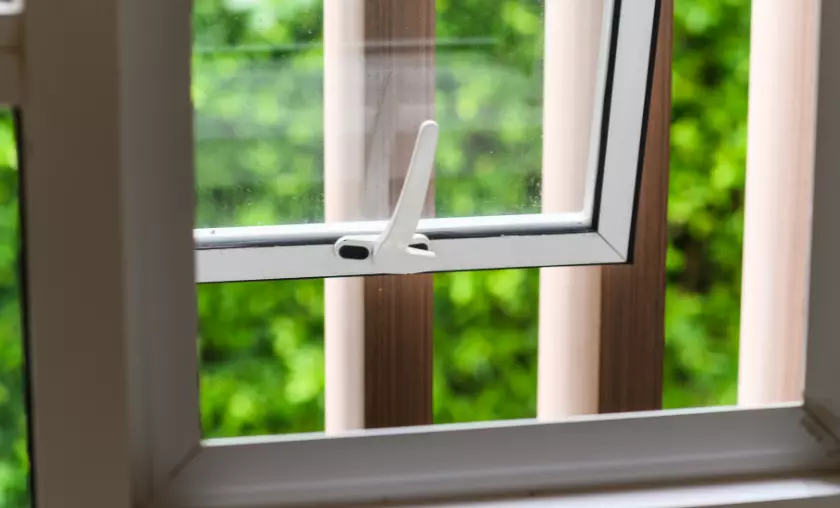
Risk assessment is the crucial first step in bolstering home security. It involves systematically evaluating your property to identify vulnerabilities and potential weak points that intruders could exploit. This assessment includes scrutinizing entry points like doors and windows, evaluating the strength and quality of locks, and assessing the lighting in and around your home.
Understanding the layout of your property, identifying hiding spots, and recognizing any structural issues that might compromise security is essential. It’s a proactive approach to anticipate and mitigate potential risks, which lays the foundation for effective home security measures.
Factors That Can Compromise the Security of Your Home
By pinpointing weaknesses, you can take targeted actions to fortify your home, making it less attractive to would-be intruders and ensuring a safer living environment for you and your family.
Securing Doors
The First Line of Defense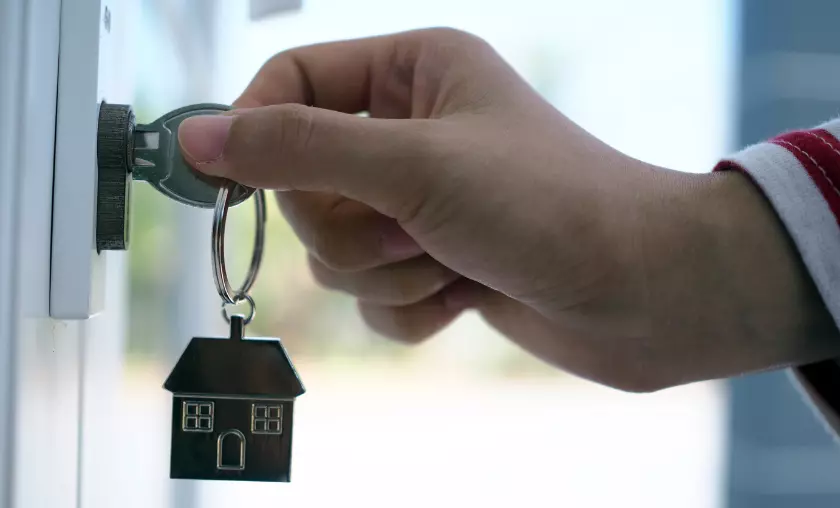
Securing doors is the primary line of defense when it comes to home security. Your front and back doors, along with any side or garage entrances, are the most common points of entry for intruders. To bolster security, start by investing in sturdy, solid-core doors that can withstand forced entry attempts. Reinforce door frames with security strike plates and consider adding deadbolt locks for added protection.
Peepholes and door viewers allow you to see who’s outside without opening the door. Additionally, consider smart locks, which offer remote access control and the ability to monitor door activity.
- Upgrade Locks: Install deadbolt locks with at least a one-inch throw bolt on all exterior doors. Reinforce strike plates with longer screws to make it harder to kick in doors.
- Reinforce Door Frames: Strengthen door frames with security strike plates and door jamb reinforcement kits to prevent the frame from splitting during a forced entry attempt.
- Use Security Bars: Consider adding security bars or door braces on sliding glass doors to prevent them from being forced open.
- Install Peepholes: Install peepholes or door viewers at eye level to see who’s outside without opening the door, enhancing security for both front and back doors.
- Smart Locks: Explore smart lock options that allow you to control and monitor your locks remotely, providing an extra layer of security and convenience.
Properly securing doors is a fundamental step in safeguarding your home and creating a more secure living environment for you and your family.
Window Security
Preventing Unauthorized Entry
Window security is a vital component of safeguarding your home against unauthorized entry. While providing natural light and ventilation, windows can also be potential weak points if not properly secured. Start by installing sturdy locks or window security pins that restrict how far a window can be opened. Reinforce glass windows with security film or laminated glass to make them more resistant to shattering.
Consider installing window sensors as part of a home security system, which can alert you to any attempted entry. For ground-level or easily accessible windows, use window well covers to prevent intruders from gaining access.
Measures to Protect Your Home’s Windows
Adequate window security ensures that your home remains a safe and protected sanctuary for you and your family.
Home Alarm Systems
24/7 Protection
Home alarm systems provide round-the-clock protection and peace of mind for homeowners. These systems include a network of sensors placed strategically throughout your home, including doors, windows, and key access points. When an intrusion is detected, the alarm system activates a loud siren and alerts a monitoring center, which can dispatch emergency services if necessary.
Many modern alarm systems also come with smart features, allowing homeowners to remotely control and monitor their security via smartphone apps. Additionally, these systems often include features like smoke and carbon monoxide detectors, offering comprehensive protection against various threats.
Benefits of Installing a Home Security System
With home alarm systems, you can rest assured that your home is actively safeguarded, whether you’re at work, on vacation, or simply asleep at night.
Surveillance Cameras
Keeping an Eye on Your Property
Surveillance cameras are integral to modern home security, allowing homeowners to always monitor their property. These cameras come in various forms, from traditional fixed-position cameras to smart, wireless devices with remote viewing capabilities.
Placing cameras strategically around your property can help deter potential intruders and provide valuable evidence in case of a security incident. Moreover, surveillance cameras offer the convenience of remote monitoring via smartphones or computers, enabling homeowners to check on their property while away.
- Deterrence: Visible security cameras are a powerful deterrent, discouraging potential intruders from targeting your home.
- Evidence Collection: Surveillance cameras capture valuable video footage that can serve as evidence in case of a break-in, vandalism, or other security incidents.
- Remote Monitoring: Many security cameras offer remote access via smartphone apps or computer interfaces, allowing homeowners to check their property in real time from anywhere.
- Motion Detection: Advanced cameras can detect motion and send alerts to homeowners, providing immediate notifications of suspicious activity.
- Night Vision: Infrared technology enables security cameras to capture clear video footage even in low-light or nighttime conditions, ensuring 24/7 monitoring capability.
Features like motion detection and night vision provide comprehensive coverage, ensuring your home remains safe and secure.
Motion Sensor Lighting
Illuminating Safety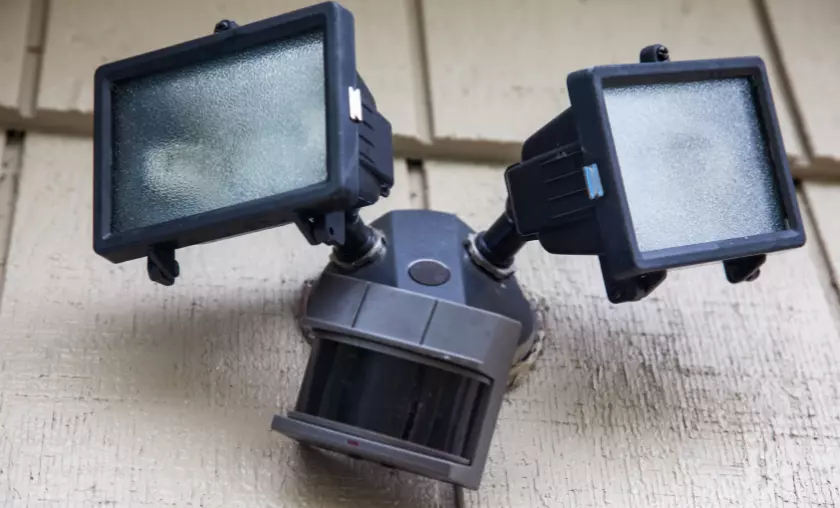
Motion sensor lighting is a smart and effective way to enhance the safety and security of your home’s exterior. These lighting systems are designed to automatically illuminate when they detect motion, which can startle intruders and alert you to potential threats. They are commonly installed near your property’s entryways, pathways, and dark corners.
Motion sensor lights deter trespassers and offer convenience, ensuring you have well-lit areas when you need them, such as when you arrive home at night. Plus, they conserve energy by only activating when motion is detected, making them an environmentally friendly option.
- Sudden Illumination: Motion sensor lights startle intruders by suddenly flooding the area with bright light when motion is detected, making them feel exposed and vulnerable.
- Alert Homeowners: When motion-activated lights come on, they signal that someone is approaching, allowing them to take appropriate action or call for help.
- Disruption: Intruders often rely on darkness to hide their activities. Outdoor lighting disrupts this by providing clear visibility, making it harder for them to move stealthily.
- Increased Risk: Well-lit properties increase the perceived risk for criminals, as they are more likely to be seen and identified by neighbors or security cameras.
- Deterrence: Knowing that a property is equipped with motion sensor lighting can deter potential intruders from even attempting to break in, choosing easier targets instead.
Motion sensor lighting is a simple yet highly effective addition to your home security toolkit, providing peace of mind and added safety to your property.
Smart Home Security
High-Tech Protection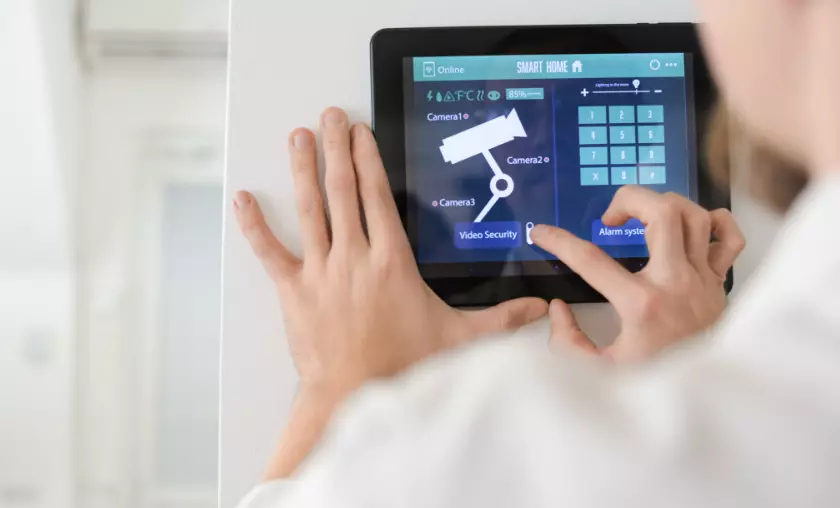
Smart home security systems are revolutionizing the way we protect our homes. These high-tech solutions integrate various devices and sensors to provide comprehensive security coverage. They typically include components like smart cameras, motion detectors, doorbell cameras, and smart locks, all of which can be controlled remotely through smartphone apps.
The real-time alerts and monitoring capabilities empower homeowners to stay connected to their homes no matter where they are. Moreover, smart security systems often integrate with other smart home devices, such as lights and thermostats, allowing for automation and energy savings.
- Remote Monitoring: Homeowners can remotely monitor their property through smartphone apps, providing real-time access to security cameras and sensors.
- Smart Locks: Automated locks can be controlled remotely, allowing homeowners to lock or unlock doors for trusted visitors or service providers.
- Custom Alerts: Smart security systems can send customized alerts for specific events, such as motion detection, door/window openings, or even when someone approaches your front door.
- Integration: These systems often integrate with other smart devices like lighting and thermostats, allowing you to create the illusion of an occupied home even when you’re away.
- Voice Control: Many smart security systems can be controlled via voice commands, adding convenience and accessibility to your home security.
With their advanced features and ease of use, smart home security systems offer a modern and effective way to safeguard your property and loved ones.
Neighborhood Watch
Community Safety
Neighborhood watch programs are a powerful means of fostering community safety and unity. These initiatives involve residents coming together to collectively keep an eye on their neighborhood and report any suspicious activities to local law enforcement. Neighborhood watch programs can help deter crime and increase security by promoting community communication and collaboration.
Advantages of Collaborative Security Efforts
Regular meetings and neighborhood patrols allow residents to get to know each other better and establish a network of support. Additionally, these programs often provide resources and guidance on home security, making it easier for homeowners to protect their properties.
Emergency Planning
Preparedness for Peace of Mind
Emergency planning is crucial to ensuring the safety and well-being of yourself, your family, and your property during unexpected crises. This proactive process involves assessing potential risks in your area, developing a comprehensive emergency plan, and gathering necessary supplies. It covers various scenarios, from natural disasters like hurricanes, earthquakes, and floods to human-made emergencies like power outages or civil unrest.
A well-thought-out emergency plan should include communication strategies, evacuation routes, and meeting points for family members. Regular drills and training can help everyone understand their roles and responsibilities during a crisis.
- Risk Assessment: Start by evaluating the security risks and vulnerabilities in and around your home, considering factors like location, neighborhood, and previous incidents.
- Emergency Contacts: Compile a list of emergency contacts, including local law enforcement, fire departments, medical services, and trusted neighbors, and keep this list readily accessible.
- Communication Plan: Establish a communication plan for your family, including designated meeting places and a method for staying in contact if you’re separated during an emergency.
- Home Security Measures: Implement security measures such as alarms, locks, motion sensor lighting, and security cameras to protect your home and deter potential intruders.
- Emergency Supplies: Assemble an emergency kit with essential supplies like non-perishable food, water, first-aid supplies, flashlights, batteries, and any necessary medications, and regularly update it.
By preparing, you can significantly reduce the stress and uncertainty that often accompanies emergencies, ultimately achieving peace of mind in the face of the unexpected.
Conclusion
In conclusion, understanding the basics of home security is paramount in safeguarding your loved ones and your property. By implementing the fundamental principles discussed in this article, such as securing doors and windows, installing quality locks, and considering home security systems, you can significantly enhance the safety of your home.
Investing in home security is an investment in peace of mind. Whether you live in a suburban neighborhood or a bustling urban area, taking proactive steps to protect your home can reduce the risk of break-ins and provide the comfort of knowing you’ve done your best to create a secure living environment for you and your family.
FAQ’s
What Should I Do in Case of a Break-in or Emergency?
In case of a break-in or emergency, prioritize safety by leaving your home if necessary. Call 911 immediately and, if applicable, trigger your home security alarm. Afterward, document any damages or stolen items for insurance claims, and consider upgrading your security measures to prevent future incidents.
How Can I Secure My Home When I’m Away on Vacation?
When traveling, use timers for lights, have a trusted neighbor collect mail/packages, and avoid posting vacation plans on social media. Additionally, consider notifying local law enforcement of your absence.
Are Home Security Systems Worth the Investment?
Home security systems offer valuable protection, including alarms, surveillance cameras, and monitoring services. They deter burglars and provide a sense of security and quick response in emergencies.
How Can I Improve Outdoor Security Around My Home?
Outdoor security measures include proper lighting, landscaping maintenance, and fencing. Motion-activated lights and trimming shrubs near windows can deter potential intruders.
What Are the Most Common Entry Points for Intruders, and How Can I Secure Them?
Common entry points include doors and windows. You can enhance security by using deadbolt locks, reinforced strike plates, and shatterproof glass for doors. For windows, consider installing window locks and security film.
To Read More Similar Articles, Click Here.
Thanks for Visiting Our Website. If You Appreciate Our Work, Kindly Show Us Some Support in Our Comments Section 🙂


